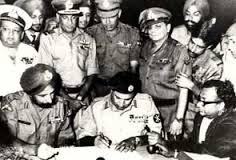-
December 3, 1971 | Day 1
The India-Pakistan war broke out. The American consulate General, Dhaka sent a telegram to Secretary State stating the present situation.A report by BBC, wrote: “In a speech to the nation on December 3, 1971, Prime Minister Gandhi charged that Pakistan had launched a full-scale attack against India earlier in the day, shortly after 5:30 p.m. She said that Pakistan’s Air Force had struck at six Indian airfields in Kashmir and the Punjab and that Pakistani artillery was shelling Indian positions at several locations along the border between India and West Pakistan. India, Gandhi said, had no option but to adopt a war footing.”
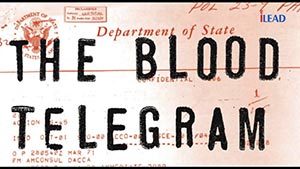
-
December 4, 1971 | Day 2
The Battle of Basantar (aka The Battle of Barapind) started in the western sector of India. It went on till December 16 with massive military operations and detailed planning. The Indian troops secured the Punjab and Jammu sector after a hard fought battle. A series of skirmishes along the Shakargarh sector is collectively known as the Battle of Basantar.
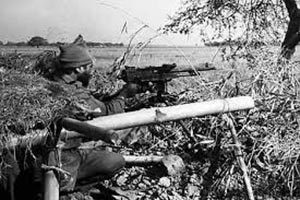
-
December 5, 1971 | Day 3
This was the second day of the Battle of Gazipur. It took place at the Gazipur Tea Estate near Kalaura, Sylhet in the eastern sector. The Mitro Bahini (comprising of Mukti Bahini and Indian Army) attacked the 22 Baluch Regiment of the Pakistani Army. This battle laid the groundwork for the Battle of Sylhet.
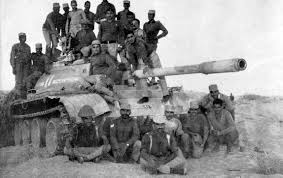
-
December 6, 1971 | Day 4
British reacted to the USG position on Indo-Pak Conflict. Meanwhile, Mrs Gandhi had cleared her position during her speech in the Parliament that she was soon going to recognize Bangladesh. In the Parliament Mrs Gandhi said, “I am glad to inform the House that in the light of the existing situation and in response to the repeated requests of the Government of Bangladesh, the Government of India have after the most careful consideration, decided to grant recognition to the GANA PRAJATANTRI BANGLADESH. Our thoughts at this moment are with the father of this new State-Sheikh Mujibur Rahman.”
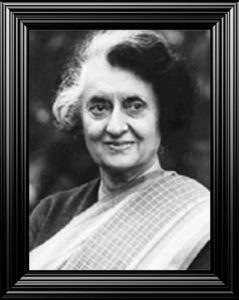
-
December 7, 1971 | Day 5
In the meantime, Jessore and Sylhet were liberated by the Indian troops with the help of Mukti-Bahini.
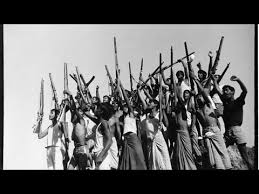
-
December 8, 1971 | Day 6
Indian troops were working hard with Mukti-Bahini and they liberated Comilla and Bramhonbaria. The Indian army Chief General Sam Manekshaw cleared their aim and called off Pakistan army and told them to surrender immediately.
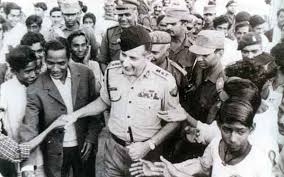
-
December 9, 1971 | Day 7
Chandpur and Daudkandi were also liberated. On the other side, Zulfikar Ali Bhutto went for New York.
Thoughts of Zulfikar Ali Bhutto when he was leaving for New York on 1971 war: “People’s Party leader Z.A. Bhutto Newly designated by Yahya as vice Prime Minister said, he will do utmost to bring about ceasefire and withdrawal of forces. He is also ready to do what he can to achieve satisfactory political accommodation with East Pakistan. Including active negotiation with Mujib.”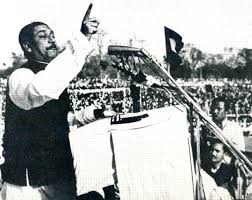
-
December 10, 1971 | Day 8
Slowly, Bangladesh was liberated from Pakistan as the Pak-commanding officer surrendered with his officers and 416 men.
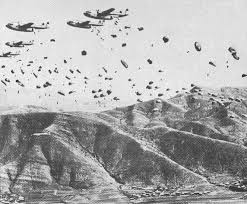
December 11, 1971 | Day 9
Indian troops were working hard with Mukti-Bahini and liberated Hilli, Mymenshigh, Kushtia and Noakhali.
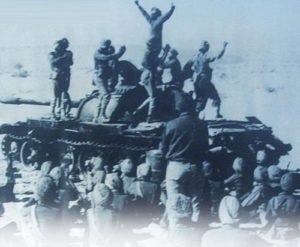
December 12, 1971 | Day 10
Indian para-troops arrived in East-Pakistan to mount an assault on Dhaka.
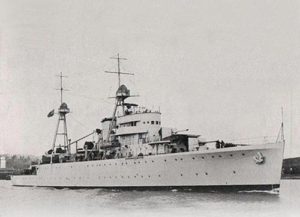
December 13, 1971 | Day 11
Dhaka was surrounded by Indian troops.

December 14, 1971 | Day 12
Indian Defence Minister declared the Indian’s casualty figures of that last 10-day war. More than two thousands were killed and five thousand Indian people were wounded. Many were displaced.
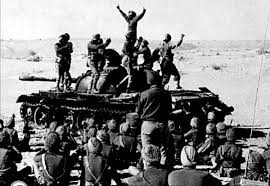
December 15, 1971 | Day 13
Zulfikar Ali Bhutto made an agitated speech at the United Nations Security Council.
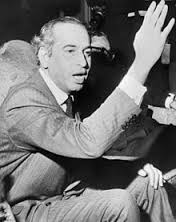
December 16, 1971 | Day 14
At last the watershed moment had come for India and Bangladesh. They had achieved what they wanted for long. The Pakistani Commander Amir Abdulla Khan Niazi surrendered to the Lt. General Jagjit Singh Aurora, the Commander of the Joint Forces. Sheikh Mujibur Rahman, the founding member of Bangladesh made his historic call for Independent Bangladesh.
